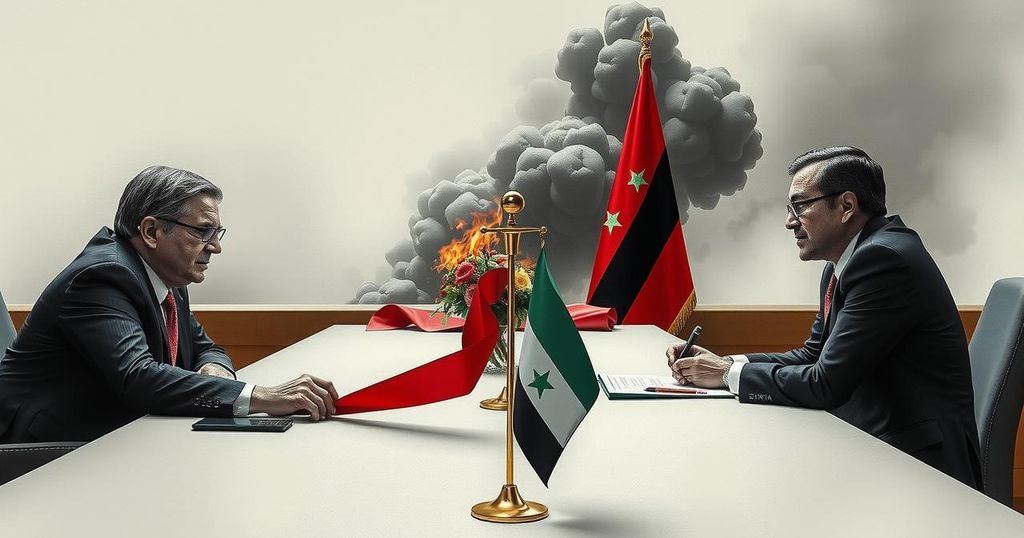Regional Powers Endorse Peaceful Transition Process in Syria
US, Turkey, and Arab officials met in Jordan to endorse a peaceful transition in Syria, emphasizing the need for an inclusive government and regional stability. Discussions highlighted the importance of preserving Syrian institutions and combating terrorism, while also revealing concerns over HTS’s commitment to inclusive governance amidst its violent history.
In a significant diplomatic engagement held in Aqaba, Jordan, officials from the United States, Turkey, and various Arab nations collaboratively endorsed a peaceful transition process in Syria. Jordanian Foreign Minister Ayman Safadi emphasized the shared belief among regional powers that Syria must avoid a descent into chaos. US Secretary of State Antony Blinken confirmed that direct communication has been established with Hayat Tahrir al-Sham (HTS), a prominent rebel group potentially pivotal in this transition, urging for governance that respects minority rights while combating terrorism.
During the meeting, Iraqi Foreign Minister Fuad Hussein expressed collective concern regarding Syria’s future, drawing parallels to the turmoil experienced in Libya post-Gaddafi. Turkish Foreign Minister Hakan Fidan underscored the necessity of preserving and reforming existing Syrian institutions to ensure that the transition period does not allow for terrorist groups to exploit vulnerabilities.
HTS has indicated a desire for inclusive governance, although skepticism remains due to its violent history. Secretary Blinken reiterated communication with HTS, particularly concerning the fate of the missing American journalist Austin Tice, despite the group’s designation as a terrorist organization still in effect.
Notably absent from the discussions was any representative from Syria itself, and the absence of Iran and Russia, which have historically supported President Bashar al-Assad, casts a shadow on the potential outcome of the talks. The foreign ministers representing eight Arab nations emphasized their aim to prevent sectarian divisions within Syria, highlighting the critical need for cohesive political entities within the country and robust coordination among international stakeholders to secure a better future for the Syrian populace.
The ongoing conflict in Syria has spanned over a decade, leading to significant humanitarian crises and geopolitical strife involving various international players. The aim of the recent meeting in Jordan was to generate consensus among regional powers regarding a peaceful transition and governance model for Syria, particularly in the backdrop of the Assad regime’s declining influence and the emergence of different rebel factions. Establishing an inclusive government capable of addressing the needs of all Syrians while combating terrorism is seen as essential to ensuring lasting stability in the region. The backdrop of past collaborative failures, such as the case of Libya, adds urgency to the current diplomatic efforts.
In conclusion, the collaborative discussions held in Jordan marked a pivotal moment for the future of Syria, highlighting the endorsement of a peaceful transition process by influential regional powers. The involvement of US officials and Arab nations reflects a strategic commitment to establishing a stable, inclusive governance framework, while also acknowledging the prevailing challenges posed by past divisions and external influences. The coming weeks will be critical in determining the effectiveness of these diplomatic initiatives and the overall prospects for the Syrian people.
Original Source: www.bbc.com




Post Comment